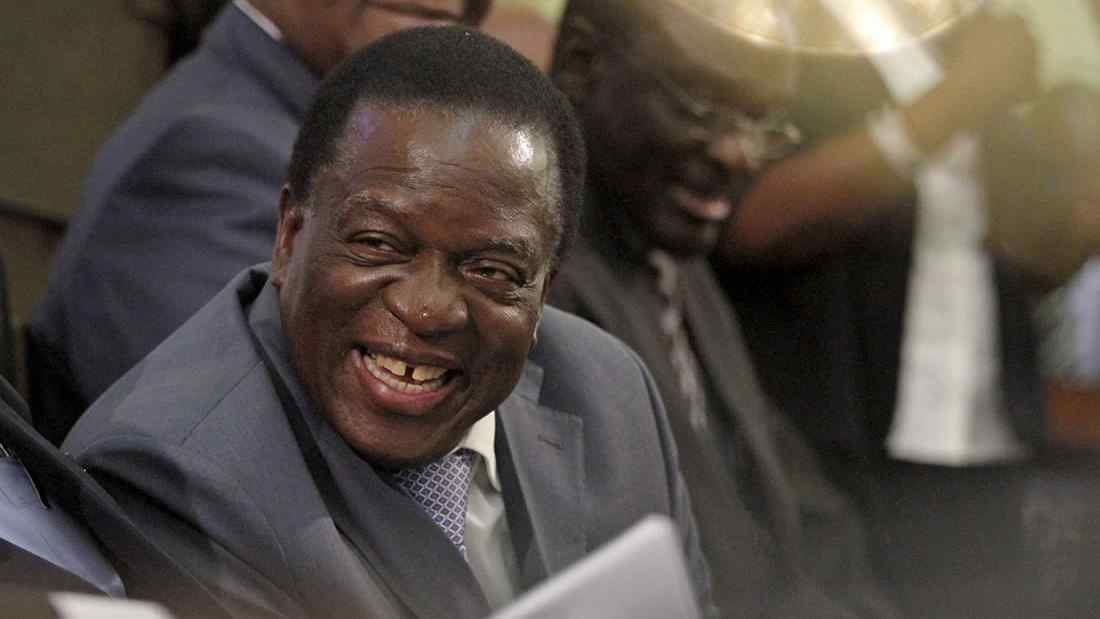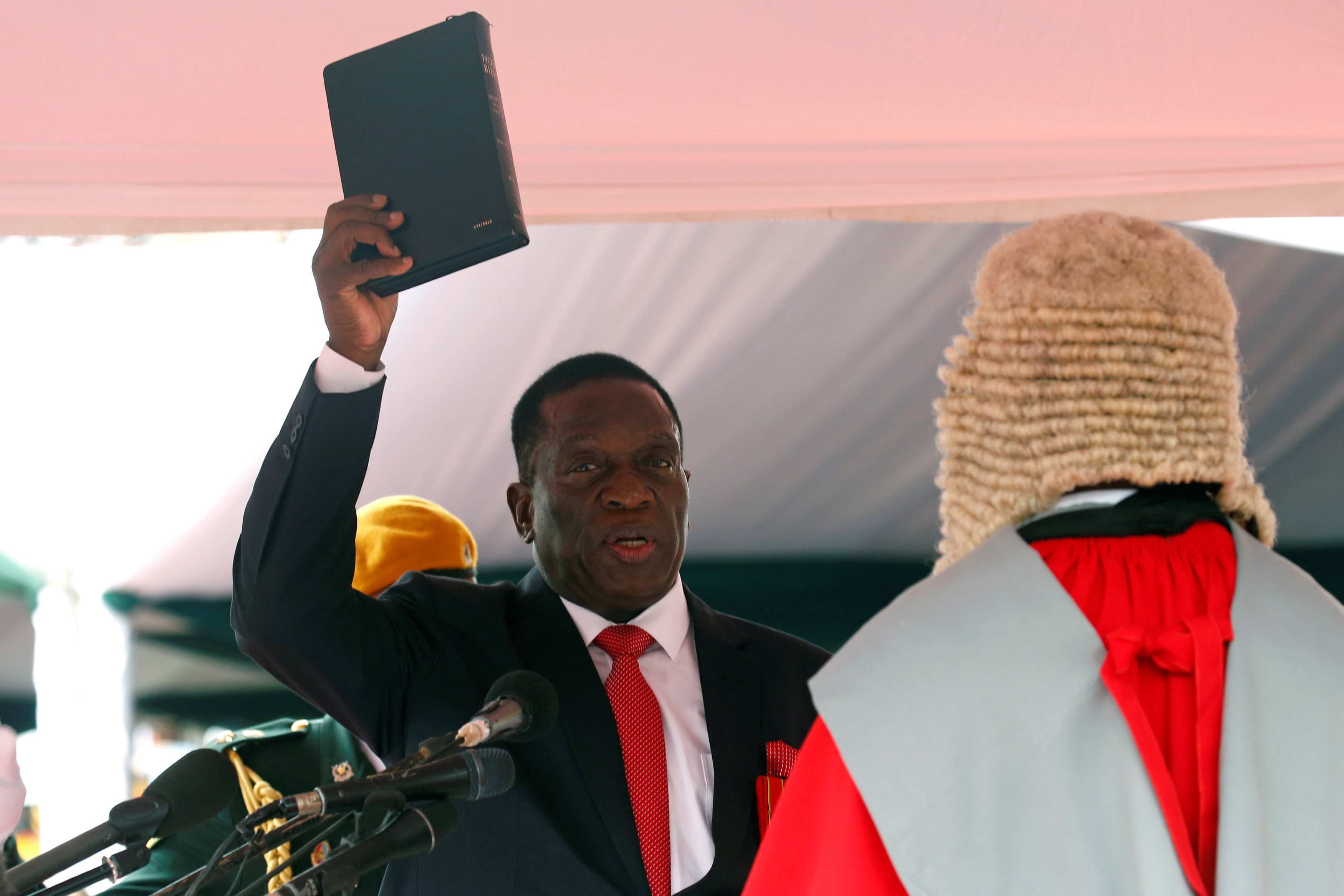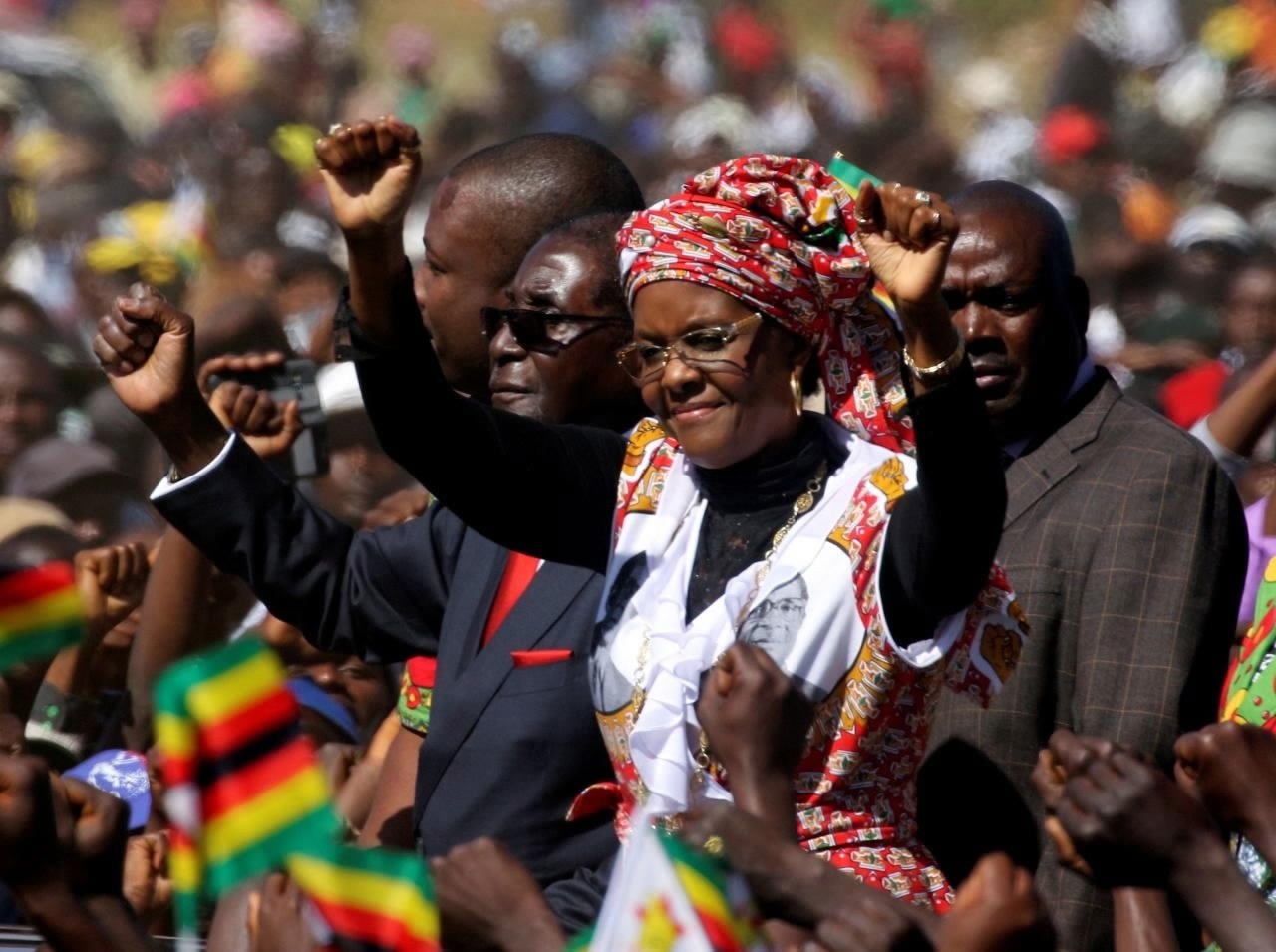
Opinions
21:13, 24-Nov-2017
Opinion: A possible dawn for Zimbabwe
Guest commentary by Li Lianxing

It is the end of an independence hero’s era in Zimbabwe, but might be a new starting point for the country. Yes, might be. The country’s revival still depends on a stable and essential power transition to the next leader and government.
Emmerson Mnangagwa was sworn in as the president of Zimbabwe after Robert Mugabe's 37-year-long rule. His leadership will be further consolidated in the fourth coming Party Congress of the Zanu-PF. He has every possible chance to continue this rule after the next general election in 2018, as traditionally opposition parties don't bring any tough challenge to the ruling party.
Now that the military is still in control of the situation and given its good relationship with Mnangagwa, a peaceful transition period is highly likely. However, the role of military in the country’s future politics becomes a key question as it exerted limited influence on the national politics previously. Although this is their first time to come into center stage, more engagement and power sharing with the next leadership seem inevitable.

Emmerson Mnangagwa is sworn in as Zimbabwe's president in Harare, Zimbabwe, November 24, 2017. /Reuters Photo
Emmerson Mnangagwa is sworn in as Zimbabwe's president in Harare, Zimbabwe, November 24, 2017. /Reuters Photo
A change of leadership, rather than political structure, is the major call of the people, so the economic crisis will remain the crux of the country’s future development under the next government.
The bankruptcy of the country’s economy was a result of many internal and external reasons. But it’s vital for the new government to revise some of the major policies that have generated severe controversies, like assets nationalization and land reform, before it embarks on a more sophisticated economic recovery package. This is to ensure a stable and safe investment and business environment for existing and potential investors. Also, the country should more actively take the chance to economically integrate into the regional bloc in order to expand its market.
Zimbabwe hasn’t benefited from its abundant natural resources as it should, and of course it’s not the only case for the country. But given its relatively more solid industrial foundation, Zimbabwe is thus in a better situation to fully unleash its natural resources potential into energy for industrialization.
As confronted by many other African fellows, how to establish a healthy industry chain to manufacture value-added products domestically remains a key to revive Zimbabwe's economy.

Robert Mugabe and his wife Grace Mugabe. /Reuters Photo
Robert Mugabe and his wife Grace Mugabe. /Reuters Photo
Also the country’s relationship with international players needs to be taken into consideration. China has become one of Zimbabwe's largest partners, and more importantly its former leader Mr Mugabe has a long and sound relationship with China.
China has stated that it respects the resignation decision by Mr Mugabe, while he is still a good friend of China, and respects the will of the Zimbabwean people. But it’s quite clear that the bilateral ties are not built up upon personal ties, but a mutual need for development. Thus as long as the development need of Zimbabwe and investment need of China exist, the bilateral relationship will continue in a quite complementary way. Also a stable and healthy investment environment benefits the interests of Chinese businesses in the country.
But this change is going to witness the change of relationship between Zimbabwe and the Western countries, which have imposed substantial economic sanctions on the country in the past decade or two. The new government is expected to welcome more investment from the thawed partnerships, thus the market in the country will become more competitive. It’s a period for old players in the country to rethink their business strategies, including China.
(Li Lianxing is a researcher at Tsinghua University and also the secretary-general of China-Africa Report Program, Tsinghua University. The article reflects the author’s opinion, not necessarily the views of CGTN.)

SITEMAP
Copyright © 2018 CGTN. Beijing ICP prepared NO.16065310-3
Copyright © 2018 CGTN. Beijing ICP prepared NO.16065310-3